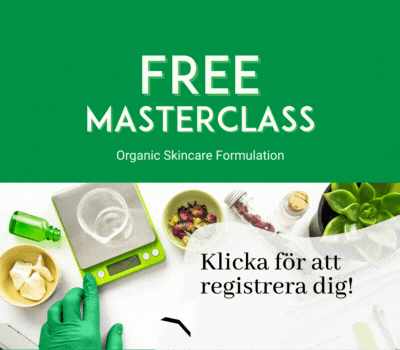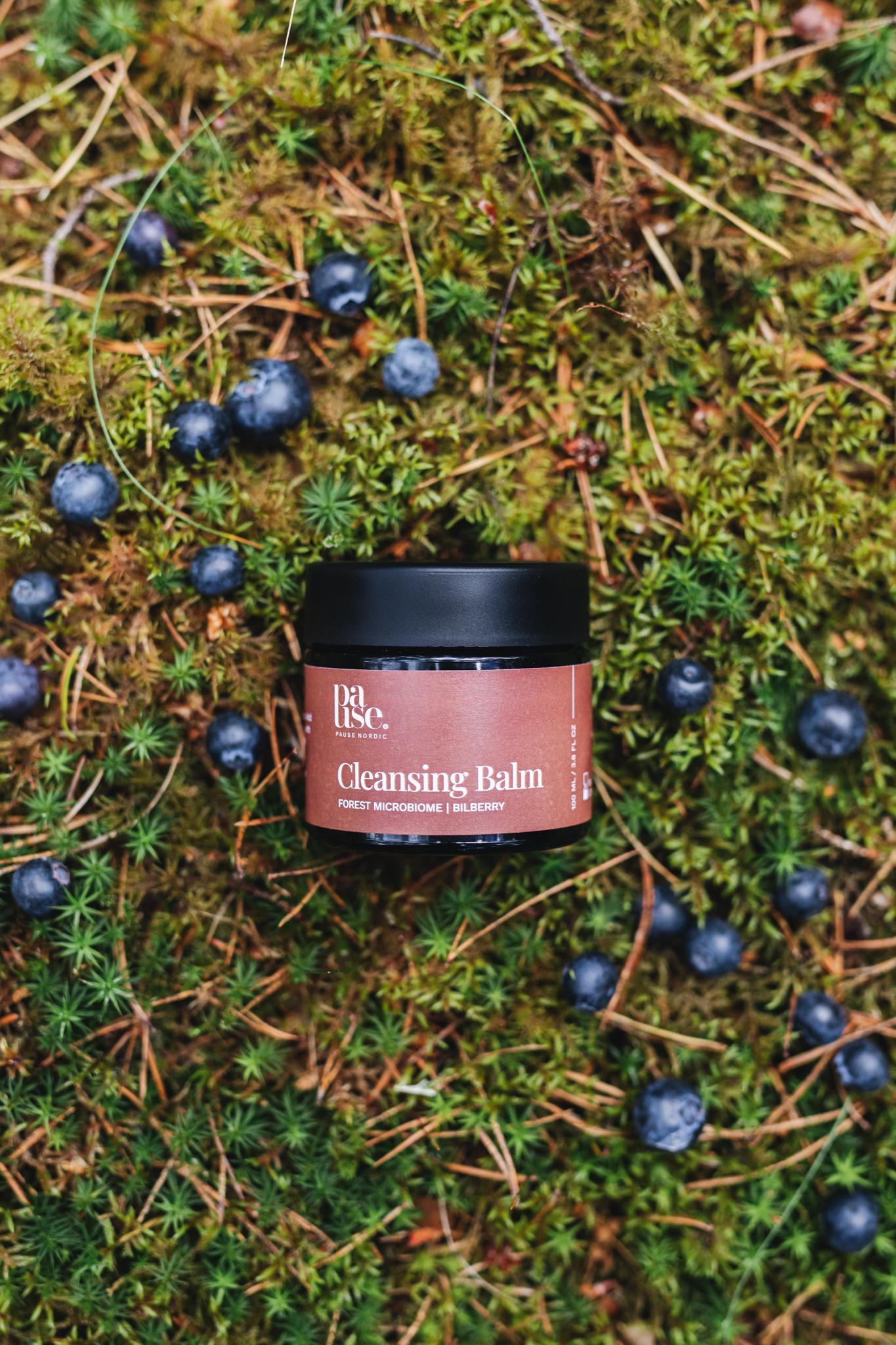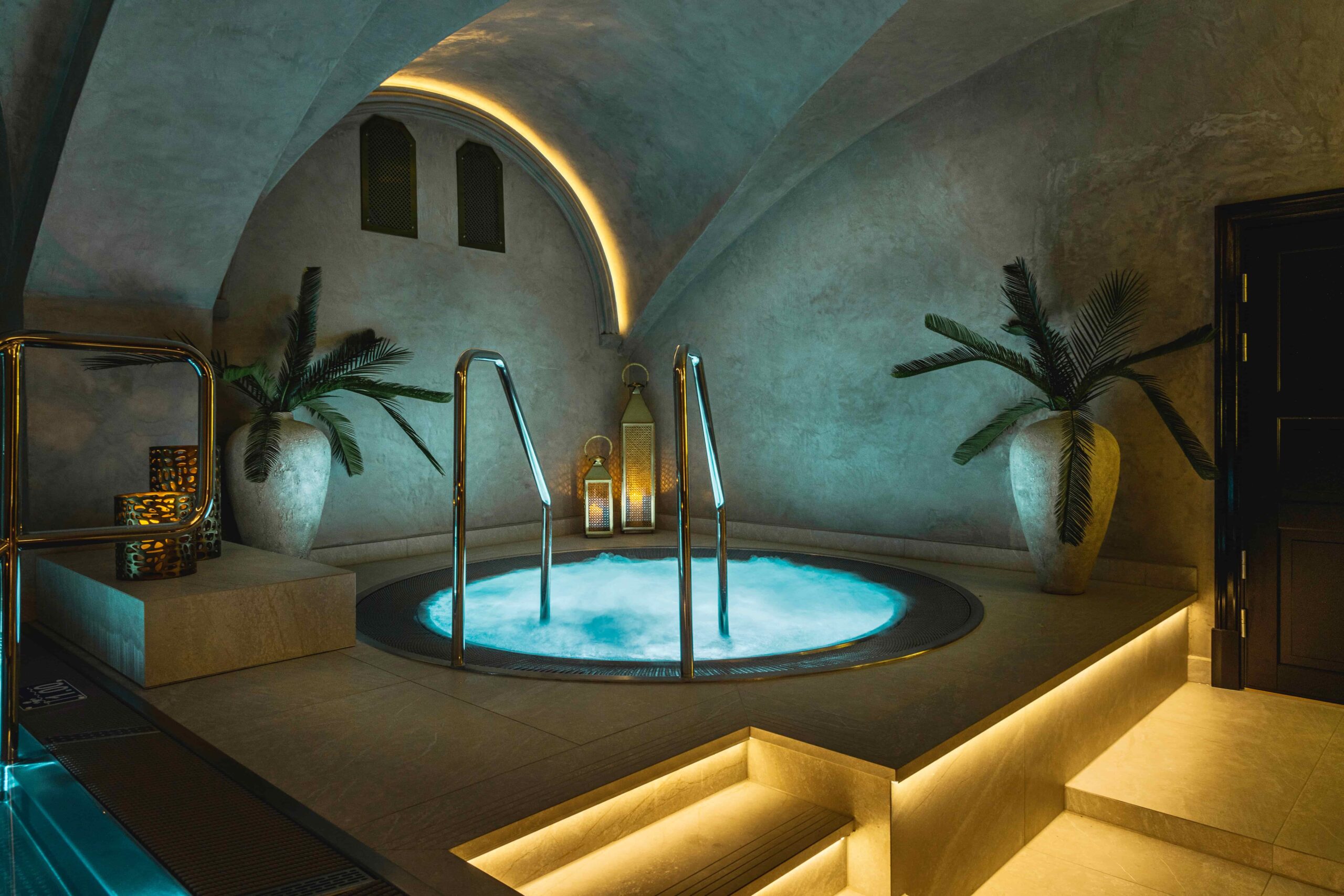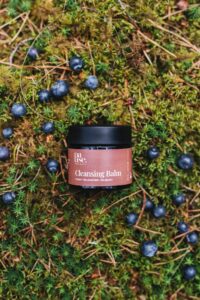Svenska (English below): Här kan du läsa en gedigen sammanfattning, ladda ner transkriberingen, presentationen samt se reprisen från paneldiskussionen om hur hotellbranschen kan byta över till naturaliga, miljövänliga hygienprodukter. Läs mer om bakgrunden till aktiviteten här.
Summary of the panel discussion on Eco-Friendly Amenities: Transforming Hospitality with Natural Products
As part of NATRUE’s Natural Cosmetics Week, the recent panel discussion, organized by Andrea Endres, on Eco-Friendly Amenities: Transforming Hospitality with Natural Products brought together industry experts to explore the hospitality sector’s transition from synthetic and petrochemical-based amenities to eco-friendly alternatives.
Tackling challenges like greenwashing, economic considerations, and consumer demand, the session shed light on actionable strategies to integrate sustainable practices into the hospitality experience. With sustainability becoming a critical factor for both guests and businesses, this conversation emphasized the urgency and benefits of embracing natural hygiene products.
Please direct download the presentation PDF here.
Introduction Presentation: Natural Cosmetics Market Size and Trends
Short introduction to preface the discussion was given by Andrea Endres about the Natural Cosmetics Market Size and Trends:
- Market Growth: The global natural cosmetics market is projected to grow from $35 billion in 2021 to $59 billion by 2031, driven by demand for eco-friendly and sustainable products .
- European Leadership: In 2023, Europe held a 38.1% market share, reflecting high consumer awareness and sustainable personal care.
- Environmental & Health Impact: Natural cosmetics support environmental health by avoiding harmful chemicals, microplastics, and synthetic ingredients, promoting cleaner ecosystems
- Consumer Preferences: Younger demographics and especially Gen Z, prioritize eco-conscious, cruelty-free products that align with sustainability and social responsibility.
- Gen Z Workforce: By 2030, Gen Z will account for 30% of the global workforce, bringing with them readily disposable income and a strong focus on social responsibility, sustainability, and work-life balance.
- Trend Drivers: The rise in ethical consumerism, focus on wellness and experiential spending over material acquisitions will fuel market expansion.

Key Takeaways from the Expert Panel on Sustainable Hospitality and Amenities
Diving into seven questions on how the hospitality sector can transition to natural cosmetics amenities, the panel featured insightful contributions from Kim de Coster, Sustainable Business Connector (connect on LinkedIn); Maria Valerga, Sustainability Expert in Tourism (connect on LinkedIn); and Dr. Mark Smith, Director General at NATRUE (connect on LinkedIn). Organized and moderated by Andrea Endres, Travel & Tourism Consultant in training (connect on LinkedIn), the discussion provided a comprehensive roadmap for how hotels and amenity suppliers can collaborate to meet evolving consumer preferences and regulatory expectations. Below, we summarize the key insights from each question addressed during the session.
What are the main challenges that are preventing the wider adoption of natural hygiene products in the hospitality sector? How can the hospitality industry balance sustainability with economic realities?
Maria Valerga highlighted several key barriers, including the lack of awareness about certified labels like NATRUE and the need for clearer definitions and transparent communication from cosmetic brands. She noted that natural products often fail to meet the diverse needs of hotels, especially in affordability. Maria also addressed the perception that natural products are pricier than conventional ones, which discourages adoption. Luxury hotels often default to well-known brands, assuming guests prefer them over certified alternatives. Lastly, she emphasized how “greenwashing” and misleading environmental claims confuse consumers and erode trust.
Kim De Coster expanded on Maria’s points, highlighting that while the industry focuses on reducing plastic packaging, it often ignores the environmental impact of the ingredients inside. She questioned whether hotels truly understand their guests’ preferences, pointing out that the assumption that guests always prefer luxury brands may be wrong. Kim argued for a more direct dialogue between hoteliers and their guests to identify what they genuinely value, by simply asking them. She also raised the issue of excessive amenities, likening the overabundance to the unnecessary use of straws, plastic or not, and urged hotels to reconsider the volume of amenities provided in rooms.
Mark Smith from NATRUE highlighted how economic pressures and inflation influence hoteliers’ decisions, often pushing them towards cheaper or more familiar products. He noted that regional differences play a role, with markets like Germany and occasionally in some Mediterranean countries demonstrating greater openness to certified natural products due to higher consumer awareness and demand. Mark echoed concerns about greenwashing, explaining that some products falsely anchor their sustainability claims on a single ingredient, leading to misrepresentation. However, he expressed optimism that upcoming European regulations could enforce greater transparency and help combat these deceptive practices. He predicted that in the next two to three years, the market might move away from greenwashing as traders adapt to stricter requirements for sustainability claims.
How much awareness exists within the hospitality industry about the dangers of petrochemical and synthetic products?
Maria Valerga observed that awareness is growing as the effects of the climate crisis become more apparent. However, there is still much work to be done in terms of training and shifting mindsets to achieve a truly sustainable transition within the sector. Maria believes that establishing a culture of sustainability, going beyond mere policy implementation, is crucial and requires a gradual change. She highlighted that cosmetic brands are not yet fully equipped to meet the hospitality industry’s demands for natural alternatives on a global scale, further emphasizing the need for a collaborative approach between the two sectors.
Mark Smith, approaching the discussion from a chemist’s perspective, cautioned against viewing petrochemical ingredients as inherently less safe than natural alternatives. He emphasized that regulations mandate safety evaluations for all cosmetic ingredients, regardless of origin. Mark suggested that the focus should shift from solely avoiding perceived hazards to highlighting the positive aspects of natural products, particularly their potential for circularity and renewability within a more sustainable system.
Kim De Coster, drawing on her experience working cross-sector, agreed that awareness is low within the hospitality industry. She attributed this to the overwhelming complexity of sustainability terminology, regulations, and claims, which can lead to confusion and disengagement. De Coster stressed the need for simpler, more accessible communication to effectively engage hotels in the conversation
Is there a real demand for natural amenities among hospitality guests?
While the shift towards eco-conscious practices is gaining momentum, the panel grappled with the question of whether a genuine demand for natural amenities exists among hotel guests. As Maria Valerga explained, there’s a lack of concrete data to prove that guests actively choose hotels based on the availability of natural toiletries. Simply because guests are not asked about this. However, her experience suggests that incorporating these products contributes to overall guest satisfaction and elevates a hotel’s environmental image, particularly among German and Scandinavian clientele.
Kim De Coster added an interesting perspective, noting that guest behaviour can shift between their home and holiday environments. While sustainability might be a priority at home, holidaymakers may adopt a more relaxed approach, accepting the provided amenities without necessarily voicing their preferences. Both Kim and Maria agreed that hotels have a responsibility to actively shape demand by offering natural options and educating guests on their benefits.
Mark Smith brought in consumer behaviour insights, revealing a common disconnect between stated preferences and actual actions. While guests may express a desire for sustainable products, convenience and cost often take precedence, especially on holiday. He highlighted the need for clear communication and engagement to encourage guests to make conscious choices.
Adding to the discussion, Andrea Endres shared the idea suggested to her during acall with a small scale manufacturer, of offering guests the choice to pay a small premium for certified and/or locally made natural amenities. This approach would be a low-risk way for hotels to gauge willingness to pay but also aligns with wellness tourism trends, where travelers seek to maintain healthy lifestyles on vacation.
Smith supported the idea of choice and incentives, emphasizing the need for tailored experiences that meet individual needs and preferences.
What strategies can help overcome the reliance of these synthetic and petrochemical based products?
The panellists explored practical strategies to reduce reliance on synthetic and petrochemical-based products within the hospitality industry. Maria Valerga advocated for a holistic approach that fosters a culture of sustainability within hotels, emphasizing the importance of involving both staff and guests in the transition. She suggested implementing interactive activities and training programmes to educate staff on the benefits and values of natural products, particularly those working with amenities in rooms and spas. Additionally, Maria recommended tracking measurable results, such as consumption rates, waste reduction, and carbon footprint comparisons between natural and conventional products. This data, she explained, can demonstrate the positive impact of natural products, enhance a hotel’s sustainability profile, and inform effective communication with guests.
Mark Smith proposes to sell the experience as a more holistic package. People already value practices like reusing towels to conserve water and energy. By connecting natural products to these eco-friendly habits, a clear, compelling sustainability message can be created that resonates with consumers. Incorporating Maria’s idea of a life cycle approach to evaluate raw material procurement and their environmental impact strengthens the case for sustainable choices. Mark also suggested emphasizing the social sustainability benefits often associated with natural products, such as ethical sourcing practices, to create a feel-good factor for consumers. He acknowledged that product longevity can be a concern with natural products but encouraged hotels to explore the growing range of natural formulations that offer comparable shelf life to their synthetic counterparts.
What role does greenwashing play? And how can the industry avoid it?
The panel acknowledged the pervasive issue of greenwashing and its potential to erode consumer trust. As Mark Smith explained, misleading claims about a product’s sustainability can create a disconnect between guest expectations and reality, leading to disappointment and a loss of confidence in “green” initiatives. Furthermore, he noted that the proliferation of unsubstantiated claims creates confusion for both consumers and those within the hospitality industry seeking to procure genuinely sustainable products.
To combat greenwashing, Mark emphasized the importance of certification schemes as a reliable way to verify a product’s sustainability credentials. He pointed out that not all certification seals are created equal and encouraged hotels to carefully evaluate the criteria and practices of different schemes. Looking ahead, he expressed optimism that upcoming regulations, such as the EU’s Green Claims Directive, will establish a clearer framework and help to curb misleading practices.
Kim De Coster highlighted a related phenomenon known as “green hushing,” where smaller brands, often overwhelmed by the complexities of substantiating their sustainability efforts, choose to remain silent rather than risk accusations of greenwashing. This, she argued, is counterproductive, as it prevents these brands from communicating their genuine efforts and connecting with consumers who value sustainability. Kim stressed the importance of empowering Sustainability Coordinators within hotels, providing them with the authority and resources to guide decision-making across all departments, from procurement to marketing, to ensure consistent and authentic sustainability messaging.
Maria Valerga added that while certification is a valuable tool, it can be a barrier for smaller, local producers who may not have the resources to obtain it. She encouraged hotels to adopt a discerning approach, going beyond certifications to engage directly with suppliers, ask questions, and assess their practices firsthand to identify genuinely sustainable options, even if they lack official certification.
What resources or support do hotels and restaurants need to make the switch to natural amenities? How ready are manufacturers to produce natural and organic cosmetics that are adapted to the hospitality quantitative needs and affordability?
Mark Smith observed that the current market, driven by economic pressures, is seeing a rise in private label products produced by third-party manufacturers, particularly, in his experience, from within the German, Austria, Switzerland region but France as well used to delivering certified products at competitive prices at scale. However, he cautioned that a sudden surge in demand for natural products could strain the existing supply chains, particularly for raw materials. Smith emphasized the need to consider the scalability of the transition and explore innovative solutions like upcycling and the use of waste streams to create new ingredients.
Kim De Coster questioned the prevailing notion of ”affordable cost,” suggesting that reducing the quantity of amenities offered could address both cost concerns and promote a more sustainable approach. She proposed giving guests the option to decline amenities altogether or pay a premium for natural alternatives. Kim also highlighted the financial challenges of cash flow faced by smaller suppliers who often struggle with extended payment terms from hotels, impacting their ability to invest in raw materials and production. She suggested that collaboration among smaller brands, pooling products, resources and expertise, could be a way to achieve greater volume and overcome these hurdles.
Maria Valerga recommended that hotels should prioritise the use of certified natural products in their spas and wellness centres. She explained that these areas directly cater to guests’ well-being, aligning with the values of natural products. Maria also noted that amenities in guest rooms could be considered a secondary priority, as many guests bring their own toiletries.
She drew a parallel with the implementation of single-use plastic bans, observing that hotels, even luxury ones, successfully transitioned to larger refillable bottles without resistance from guests. This, she suggested, indicates a willingness among guests to adapt to sustainable practices. Maria emphasized that many hotels still associate quality service with traditional systems that have defined it for years, overlooking shifts in people’s behavior – a crucial factor to consider today.
What next steps should hotels and amenity suppliers take to start accelerating this transition?
In closing, the panellists outlined key steps that hotels and amenity suppliers can take to accelerate the shift towards natural products. Mark stressed the need to stimulate consumer demand through effective communication and by presenting natural amenities as a desirable choice rather than a compromise. He encouraged the industry to simplify its messaging, focusing on the tangible benefits of natural products while acknowledging that the transition will be gradual and require adaptation over time.
Maria Valerga believes that to accelerate the transition to natural amenities, the hospitality industry must adapt to modern challenges, including sustainability. She urges both the hospitality and cosmetics industries to set clear sustainability goals, operate transparently, and work together across the supply chain. She emphasises investing in projects that positively impact people and the planet. Maria emphasized also that meaningful change begins with personal choices – seeking transparency, prioritizing certified products, and consuming thoughtfully based on true needs.
Kim De Coster echoed the importance of open dialogue, underlining the need for hotels to engage in conversations with both their guests and potential suppliers. She highlighted the growing demand for experiences among consumers, suggesting that natural amenities could be positioned as part of a holistic wellness offering, enhancing guest satisfaction and creating new opportunities for collaboration between hotels and suppliers.
Final Thoughts
This panel underscored the pivotal role of collaboration in advancing sustainability in hospitality. As the global demand for eco-friendly products continues to grow, hotels and amenity suppliers have a unique opportunity to lead by example and to be proactive. By addressing challenges head-on and embracing innovation, the industry can enhance guest experiences while contributing to a more sustainable future.
Continuing the Conversation
After summarizing the key takeaways from the panel discussion, Andrea Endres invited the audience to participate by asking questions or sharing their thoughts.
Mark Smith picked up on this thread, emphasizing that the shift toward sustainability is not a choice but an inevitability for businesses to thrive in the future. He acknowledged that navigating this transition can be daunting, particularly for those unfamiliar with the landscape, and encouraged businesses to seek support from industry associations, consortiums, and other relevant organizations that can offer guidance and resources.
Smith also highlighted the often overlooked social impact embedded in the production of natural products, noting that many natural cosmetics companies invest in the well-being of the communities from which they source their materials. He urged these companies to be more vocal about these positive contributions and, showcasing the multifaceted value of their products.
Kim De Coster wholeheartedly agreed with Smith’s perspective, noting that the ”invisible value” of sustainable practices often goes uncommunicated, hindering the broader adoption of these approaches.
She posed a question to the other panelists, seeking examples of businesses that have successfully transitioned to natural products.
Maria Valerga responded that while it is challenging to find certified natural products in certain regions, particularly in southern tourist destinations, some large hotel chains with established sustainability policies have successfully incorporated these products by sourcing them from countries like Germany and Italy.
Maria also said that recent reports and statistics from platforms like Booking.com and TripAdvisor, noted that despite inflation, rising costs, geopolitics, and AI advancements, consumers continue to prioritize sustainability.
Audience Questions:
The panel addressed audience questions on overcoming hotel resistance to natural amenities, tackling cost barriers, and implementing refillable packaging.
In response to challenges with hotels’ procurement mindsets, Maria Valerga emphasized collaborating with hotels to create interactive guest experiences and using storytelling to highlight the added value. Kim De Coster highlighted the difficulty small brands face in getting access to decision-makers and stressed the need for better connections.
On reducing costs for smaller suppliers, Mark Smith suggested focusing on circular solutions, such as repurposing used products, to align with sustainability goals.
Regarding reusable packaging, the panel agreed hygiene and safety are key concerns. Maria proposed developing operational standards and training staff to ensure safety, while Kim pointed out that some hotels already use refill systems for cleaning products, offering a potential starting point.
Self-Care Planner

Superfin och lättanvänd Self-Care Planner som är indelad i tre delar:
- Del 1: Återupptäck dig själv och dina passioner.
- Del 2: Självvårdschecklista som hjälper dig att sätta rätt fokus, hålla koll på dina goda vanor och utvärdera din vecka.
- Del 3: Personlig 30-dagarsutmaning för dig att fylla i och följa dina mål.
Använd Egenvårdsplaneraren kontinuerligt varje dag & vecka så kommer du att kunna se helheten och få en överblick över vad som ger dig glädje och harmoni.








